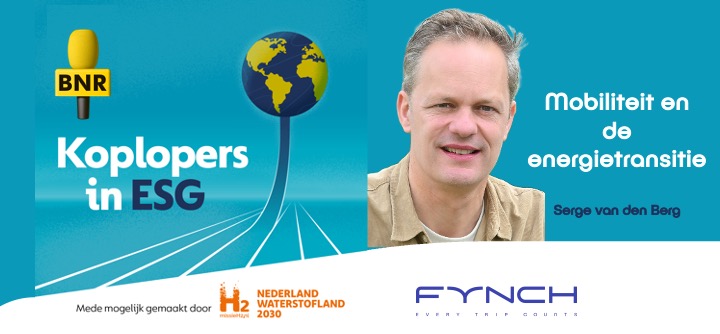Apps help reduce CO2 emissions from business traffic
This article was originally published on Change Inc.
Apps help reduce CO2 emissions from business traffic
A new measure obliges employers with more than 100 employees to keep track of the CO2 emissions of their traveling staff. The aim is to reduce CO2 emissions from business traffic. Companies fear a paperwork, but apps offer a solution.
For many companies it is not yet known exactly how much we emit by traveling for work. Of all the kilometers we travel, half is from home to the office and vice versa. We cover roughly 75 percent of this by car, 15 percent by public transport and 10 percent by other means, for example by bicycle. In addition, we make kilometers to customers at home and abroad.
The new measure – which stems from the Climate Agreement and is expected to be introduced by the new cabinet soon – obliges employers to map out exactly how many kilometers we travel and how we cover them.
This is new for many companies. But accountancy and consultancy firm PwC has been working on this for a number of years.
“In order to be able to focus on sustainability, we need to collect much more non-financial information,” says Wineke Haagsma, director of corporate sustainability at PwC. This applies to companies, but also on an individual level. “Why do I know what the energy I use costs, but not how much CO2 emissions are associated with it?”
CO2 emissions travel behaviour
Six months ago, the accountancy firm launched a method that provides employees with insight into their work-related carbon footprint. The platform, which bears the name ‘environmental footprint insights’, provides insight on various levels. For example, an individual employee can see what the CO2 emissions are from his travel behaviour, but that information is also available at company level.
In addition, PwC can calculate the footprint of an intended assignment in conversations with customers. “Customers are asking for that,” says Haagsma. “And in this way we can steer in advance to reduce CO2 emissions. For example, by taking the plane less often and traveling by train.” Because the platform – the word says it all – is fully automated, the PwC does not create any extra paperwork, according to Haagsma.
Amsterdam, Paris, Frankfurt
The method not only provides insight into the CO2 emissions associated with the work. “We map out the costs in terms of time, money and environmental impact. For example, everyone thinks that flying saves time compared to the train. But if you travel from Amsterdam to Paris or to Frankfurt, the train is faster. And more sustainable.” For this reason, PwC employees are only allowed to travel by train on these routes. A salient detail is that since then the number of trips to these destinations has decreased by 25 percent.
Unnecessarily complicated
Engineering company Arcadis has also been mapping the CO2 footprint of its activities for some time. “90 percent of our CO2 emissions come from travel,” says Yoeri Schenau, sustainability manager at the consultancy. He finds the distinction between traveling from home to work or from the office to a customer less meaningful. “Then you make it unnecessarily complicated. And you still make those miles.”
Over the past twelve years, Arcadis has moved all its offices to the immediate vicinity of intercity stations to encourage train travel and thus reduce CO2 emissions. As a result, a third of employees now travel to work by public transport. The other employees either have a lease car, which will all be electric by 2025, or drive their own car. The latter group will have to keep track of and declare the kilometers made. “But they have to do that anyway, because we have stopped paying a fixed commuting allowance for tax reasons.”
Travel tracking apps
Arcadis will therefore offer its employees the option of registering travel movements through the Fynch mobility app. “The advantage is that you automatically register your kilometres. By linking it to our central system, claiming becomes a lot easier.” Moreover, Arcadis stimulates sustainable travel behavior with the app by rewarding walked and cycled kilometers more. The company Mobility Mixx, which provides flexible mobility services, is also developing an app that makes this possible.
With the red tape, Arcadis and PwC are not that bad. But companies that are not that far along will have to invest quite a bit to get this kind of non-financial information on the table, Haagsma thinks. Yet they have to believe it. “You can’t escape it. Young professionals are asking for it and more and more legislation is coming that requires it.”


